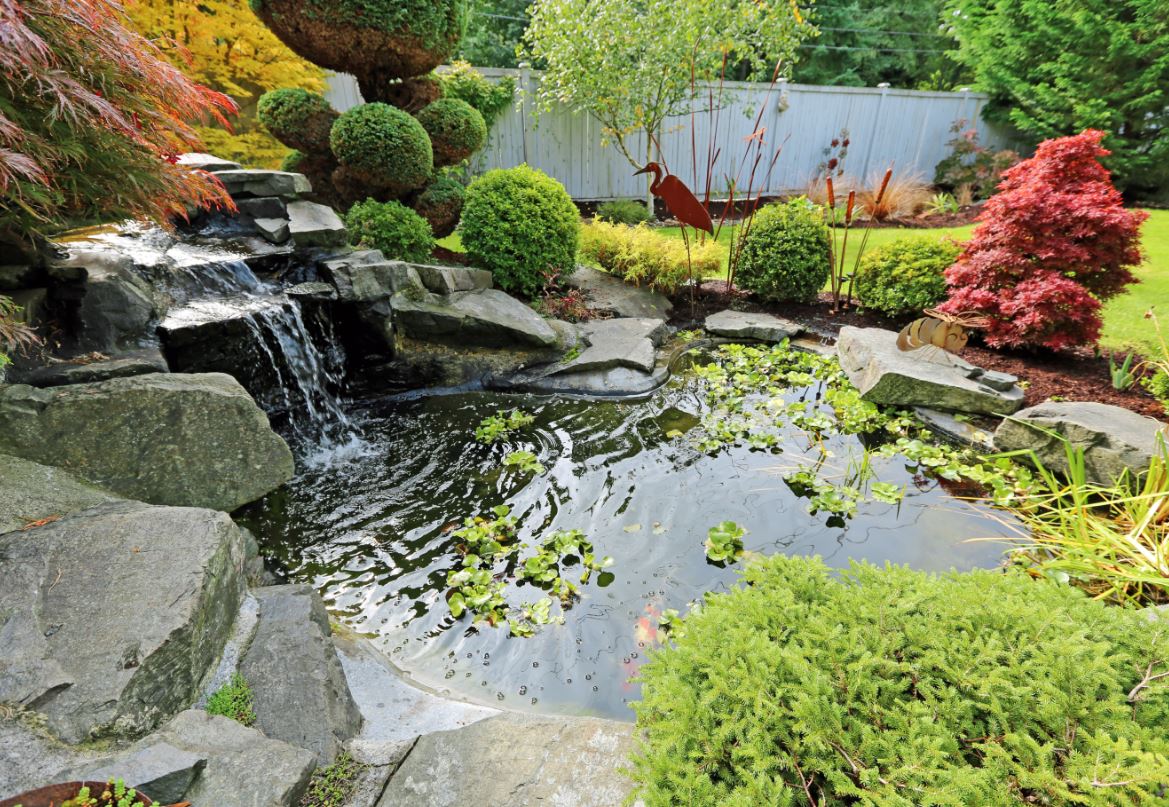Summer Pond Care
Pond temperatures have been high enough for tropical fish lately and it brings some extra pressure on the natural processes taking place in the pond. To ensure everything goes smoothly, there are a few steps you can take to make this time of year as free of stress as possible.
Oxygen levels drop as temperature rises, so extra aeration becomes important. Any pond containing fish and a large amount of submerged vegetation (or algae) will need aeration overnight, so you can see that using oxygenating plants and a solar-powered pump https://www.fishkeeper.co.uk/pond-products/pond-pumps/solar-powered-pumps can be a hazardous situation. Likewise, turning off your pond pump at night is likely to lead to similar problems. Make sure you’re providing that extra oxygen when your pets need it most https://www.fishkeeper.co.uk/pond-products/pond-pumps/air-pumps
As well as air pumps, fountains and waterfalls can increase oxygen levels. Consider adding an extra fountain pump if appropriate https://www.fishkeeper.co.uk/pond-products/pond-pumps/fountain-pumps but watch for high winds blowing tall fountains away from the pond, as this can drain a body of water surprisingly fast.
Water clarity can suffer under the influence of long sunny days. Pond filtration has two main functions – for the fishes, clarity is far less important than water quality and most wild water bodies demonstrate that the natural state of a pond is often cloudy. Toxic pollutants are removed by bacteria that colonise the filter and this means that a filter should be large enough to handle the solid waste from the pond without blocking and needing frequent cleaning, as this will compromise bacterial populations. For this reason, it’s always best to overestimate filter capacity rather than spend your summers cleaning out a filter that otherwise struggles to cope. The other main function is providing clarity and that normally requires the removal of green water algae. Being microscopic, green water simply passes through conventional filter media, so a bit of technology is required to deal with it. Ultraviolet clarifiers feature a specialised fluorescent lamp that kills the algal cells and clumps them together, so they are large enough to be removed. Various sizes are available to suit ponds large and small, as well as variables of flowrate and sun exposure. Summer tests the capacity of UV units and may reveal the need to change aged lamps which have coped through the spring. You may find that the best solution is to add a combined unit to boost your pond’s waste handling and oxygen content at the peak of the season https://www.fishkeeper.co.uk/pond-products/pond-pumps/all-in-one-units
Summer brings the frantic breeding season for goldfish, which usually passes without too many problems. Just make sure that female fish aren’t outnumbered by the more long finned and lightly built males, which chase them relentlessly during spawning. In some circumstances, this can lead to significant injury and the possibility of secondary infection by fungus or bacteria. Having a medication on standby can be very useful https://www.fishkeeper.co.uk/aquapond-care-fungus-bacteria-treatment-pond-fish
By combining shade with spawning sites, floating plants can be a great help. They tick a lot of boxes by also reducing the nutrients available to algae at the same time and plants such as Water lettuce (Pistia) can even be removed and thrown on the compost heap at the end of the summer to remove those nutrients from the system entirely.



